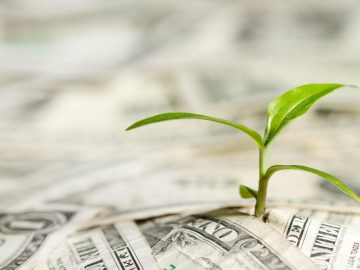Rawpixel / iStock.com
According to Forbes, there were 2,781 billionaires in 2023, up 141 from the year prior. Considering there’s something like eight billion people in this world, that’s an incredibly tiny number of people who’ve achieved “ten-figure” status.
Check Out: 4 Secrets of the Truly Wealthy, According to Dave Ramsey
Try This: 5 Subtly Genius Moves All Wealthy People Make With Their Money
When you think about such an elite group, it’s only natural to have questions. Do billionaires receive actual paychecks like other people and, if so, from whom? How do they get their income in the first place?
Trending Now: Suze Orman’s Secret to a Wealthy Retirement–Have You Made This Money Move?
Billionaires Don’t Get Typical Paychecks
Generally speaking, billionaires don’t receive traditional paychecks.
According to Americans for Tax Fairness, “First and foremost, billionaires do not grow their wealth through paychecks that are subject to federal income taxes like most workers do.”
This doesn’t mean they don’t still get paid, however. But since they don’t get typical paychecks, they also don’t have to pay income tax in the same way as everyone else. This is because they receive their income using other methods, which aren’t subject to the same type of taxation.
Read Next: How Middle-Class Earners Are Quietly Becoming Millionaires and How You Can, Too
Ways Billionaires Receive Their Money
If not through paychecks, then how do billionaires receive the money they make? As per Americans for Tax Fairness, “Billionaires often receive payments in the form of stocks, bonds and other assets, which are not subject to being taxed under the income tax.” Another method is taking out bank loans.
Here’s how billionaires liquidate their wealth so they can use it.
Dividends
One of the top ways billionaires — and anyone else in the top “1%” — get their money is through dividends.
According to the Brookings Institution, “These households receive most of their income from investments (interest, dividends, and especially realized capital gains).”
Dividends are a sum of money paid out every so often — usually quarterly — by a business to its shareholders. This can come in the form of cash or be reinvested in stocks to further bolster a portfolio. Some billionaires and multi-millionaires live off these dividends, at least partly.
As for capital gains, these are the profits made on an investment. According to Vanguard Group, “When you sell investments at a higher price than what you paid for them, the capital gains are ‘realized’ and you’ll owe taxes on the amount of the profit.”
Low-Interest Loans
Next up is bank loans.
“Rather than selling assets off when they want to make purchases, billionaires are able to take out low-interest loans using the rising value of their stock as collateral,” as per Americans for Tax Fairness.
In other words, billionaires and other high-net-worth-individuals can borrow large sums of cash using their portfolio of stock to secure that money. Since loans aren’t technically income, they’re not subject to income tax. The money is generally still subject to interest, though rates vary.
An example of this was when Elon Musk purchased Twitter by borrowing $25.5 billion — tax-free — against his Tesla stock.
Selling Appreciated Assets
“Billionaires often rely on strategic and tax-efficient methods to liquidate their wealth, prioritizing the preservation of their overall financial composition while minimizing tax liability,” said Melissa Murphy Pavone, founder at Mindful Financial Partners.
One way they do this is by selling appreciated assets like bonds, real estate, stocks or even art. Liquidating these assets gives them greater cash flow when they need it.
Notably, this method does generally result in taxable gains. But while short-term capital gains are taxed at a similar rate to regular income tax, long-term gains usually have a much lower tax rate.
According to Pavone, billionaires also typically use strategies like tax-loss harvesting or spread sales over years to cut down on the taxable gains.
Salary
As per the Brookings Institution, “Investments and businesses constituted 82% of income for the top 0.01% and 88% for the top 0.001% in the most recent data.”
As far as business goes, some billionaires will receive a salary or bonuses through their company. Businesses may include partnerships, sole proprietorships and S Corporations. The actual salary depends on the individual and may be fairly nominal compared to their actual net worth.
More From GOBankingRates
This article originally appeared on GOBankingRates.com: Do Billionaires Get Paychecks? 4 Ways They Receive Their Income



